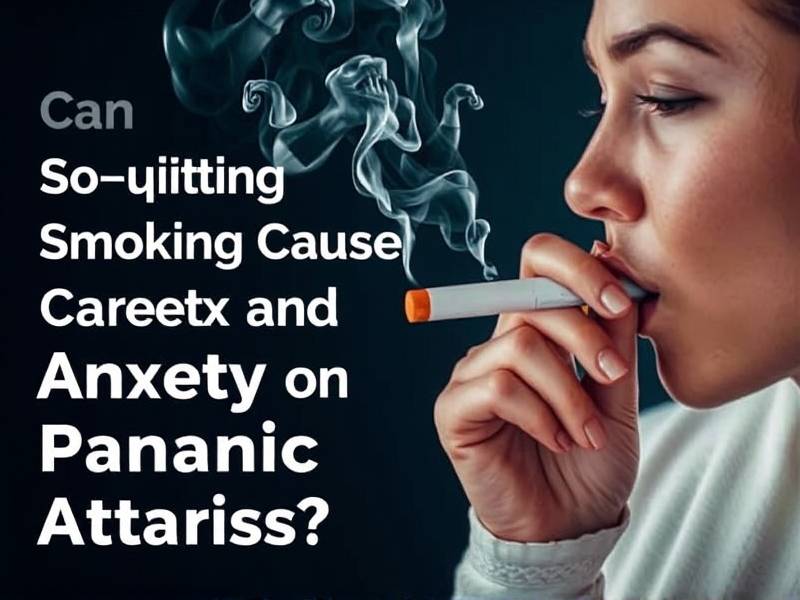Can Quitting Smoking Cause Anxiety and Panic Attacks?
Understanding the Connection
Quitting smoking is a significant step towards improving one's health, but it's not uncommon for individuals to experience anxiety and panic attacks during the process. This article delves into the reasons behind this correlation and provides insights into managing these symptoms.

The Role of Nicotine in Anxiety
Nicotine, a key component of tobacco products, acts as a stimulant in the body. It can temporarily alleviate anxiety by increasing heart rate and releasing adrenaline. When someone stops smoking, the body begins to adjust to the absence of nicotine, which can lead to heightened anxiety levels.
Withdrawal Symptoms and Anxiety
Withdrawal from nicotine can cause a range of physical and psychological symptoms, including:

- Increased heart rate
- Heightened alertness
- Insomnia
- Irritability
- Difficulty concentrating
These symptoms can exacerbate feelings of anxiety, leading to panic attacks in some cases.
Panic Attacks: What They Are and How They Feel
A panic attack is a sudden surge of intense fear or discomfort that reaches a peak within minutes. During a panic attack, individuals may experience symptoms such as:
- Heart palpitations or increased heart rate
- Sweating
- Trembling or shaking
- Shortness of breath or rapid breathing
- Feeling dizzy or lightheaded
- Choking sensations
- Chest pain or discomfort
- Nausea or abdominal distress
- Feeling uncontrolled or out of touch with reality
It's important to note that panic attacks are not life-threatening, but they can be extremely distressing.
Managing Anxiety and Panic Attacks During Quitting Smoking
Here are some strategies to help manage anxiety and panic attacks when quitting smoking:
1. Gradual Reduction
Instead of quitting cold turkey, consider gradually reducing your smoking frequency. This approach allows your body to adjust more smoothly to lower nicotine levels.
2. Support Systems
Seek support from friends, family, or support groups. Sharing your experiences with others who have gone through similar challenges can be incredibly helpful.
3. Relaxation Techniques
Practice relaxation techniques such as deep breathing exercises, meditation, or yoga. These methods can help calm your mind and reduce stress levels.
4. Professional Help
If anxiety and panic attacks become overwhelming, consider seeking help from a mental health professional. Therapy options like cognitive-behavioral therapy (CBT) can be particularly effective in managing these symptoms.
5. Alternative Treatments
Some individuals find relief through alternative treatments like acupuncture or herbal supplements. However, it's essential to consult with a healthcare professional before trying any new treatment.
Conclusion
While it's true that quitting smoking can trigger anxiety and panic attacks in some individuals, there are various strategies available to manage these symptoms effectively. By understanding the relationship between nicotine withdrawal and anxiety and adopting appropriate coping mechanisms, you can successfully navigate this challenging phase on your journey towards a smoke-free life.
